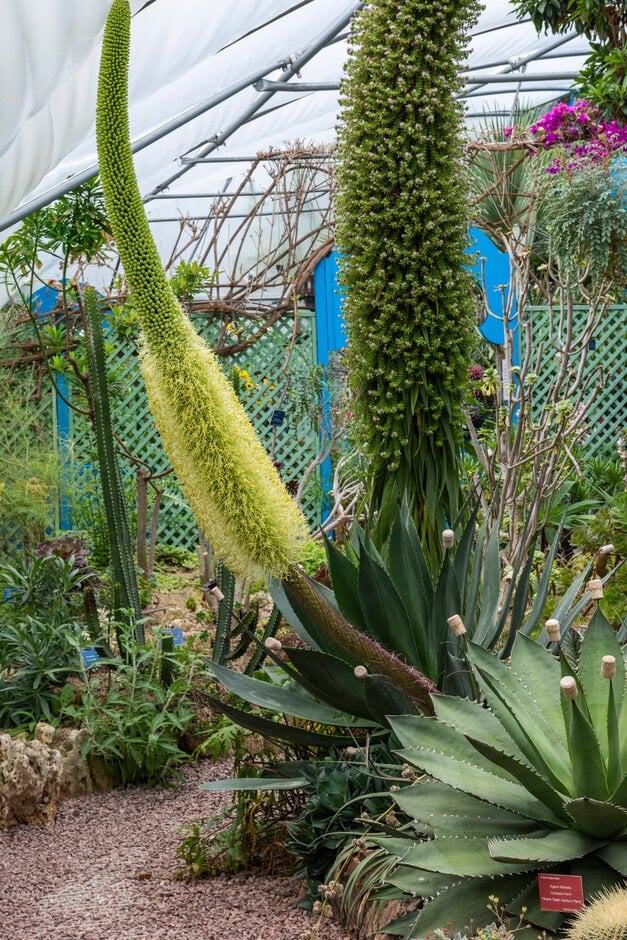Agave bracteosa
spider agave
A slow-growing, evergreen perennial succulent with a single rosette of narrow, fleshy mid-green leaves with pointed ends. A bottle-brush like spike of densly clustered creamy-white flowers appear on mature plants. A smaller variety and very hardy, making it a great architectural or tropical-looking addition to the garden

Buy this plant
Size
Ultimate height
0.1–0.5 metresTime to ultimate height
10–20 yearsUltimate spread
0.5–1 metresGrowing conditions
Moisture
Well–drainedpH
Acid, Alkaline, NeutralColour & scent
| Stem | Flower | Foliage | Fruit | |
| Spring | Green | |||
|---|---|---|---|---|
| Summer | Cream White | Green | ||
| Autumn | Green | |||
| Winter | Green |
Position
- Full sun
Aspect
South–facing or West–facing
Exposure
ShelteredDrought resistance
Yes Hardiness
H4Botanical details
- Family
- Asparagaceae
- Native to GB / Ireland
- No
- Foliage
- Evergreen
- Habit
- Clump forming
- Potentially harmful
- Skin irritant. Wear gloves and other protective equipment when handling. Pets (dogs, cats): harmful if eaten. For further information and contact numbers regarding pets, see the HTA guide to potentially harmful plants
- Genus
Agave can be perennial or monocarpic succulents, forming rosettes of usually rigid, fleshy, spiny-edged leaves, with funnel-shaped flowers in racemes or panicles often much taller than the rosettes
- Name status
Correct
- Plant range
- Mexico (Coahuila, Nuevo León)
How to grow
Cultivation
Grow under glass in cactus compost in full light. Water freely in summer, giving a low-nitrogen feed three or four times. Water less in autumn and keep dry in winter. A hardier variety than many agaves, and should survive temperatures to as low as 8ºF (-13ºC) outdoors if planted in a warm position in very well-drained, slightly acid soil in full sun. See hardy cacti and succulent cultivation for further advice
Propagation
Propagate by seed. Dies after flowering and does not produce offsets
Suggested planting locations and garden types
- Architectural
- City and courtyard gardens
- Coastal
- Cottage and informal garden
- Mediterranean climate plants
- Patio and container plants
- Rock garden
- Gravel garden
- Conservatory and greenhouse
- Flower borders and beds
Pruning
No pruning required
Pests
May be susceptible to scale insects
Diseases
Generally disease-free
Get involved
The Royal Horticultural Society is the UK’s leading gardening charity. We aim to enrich everyone’s life through plants, and make the UK a greener and more beautiful place.